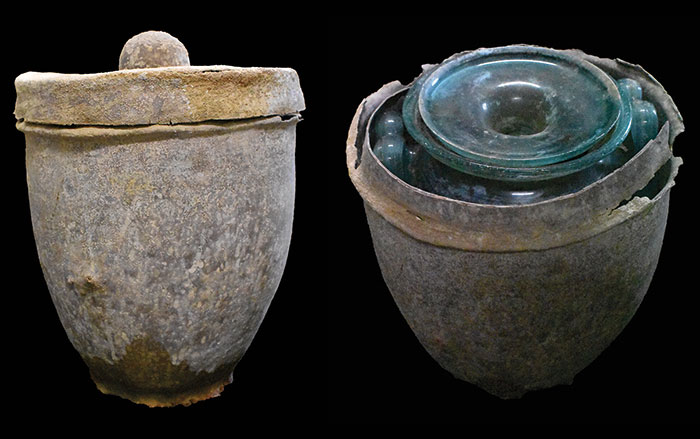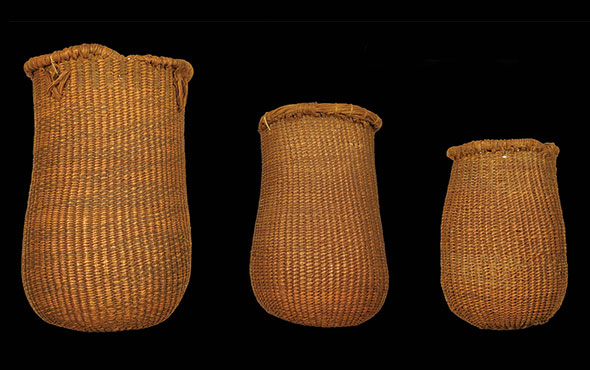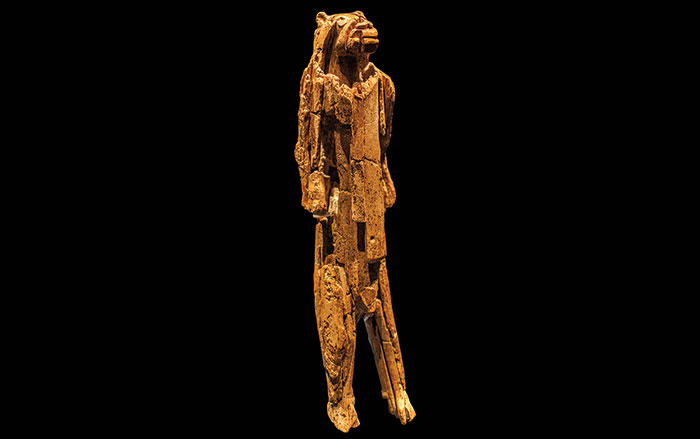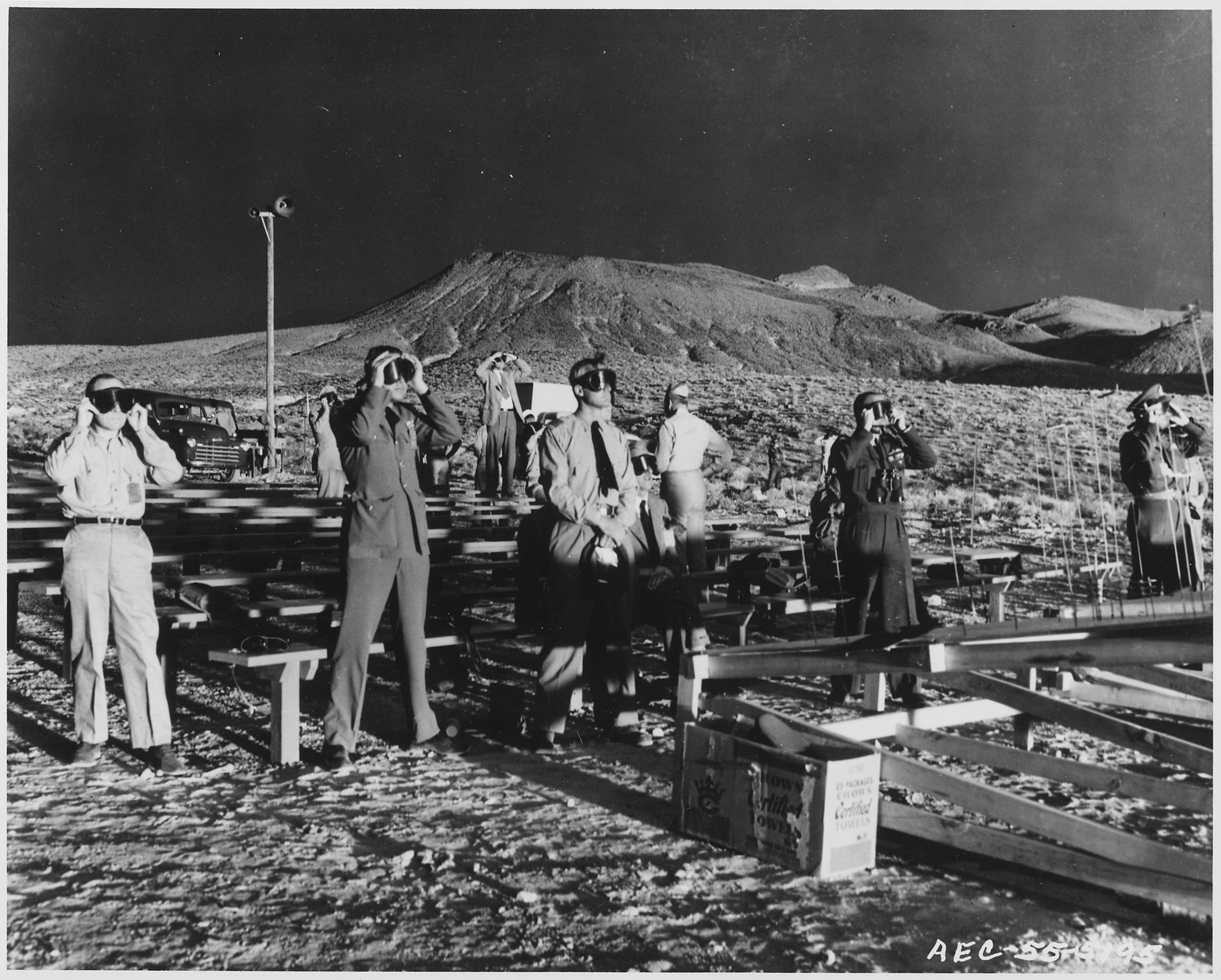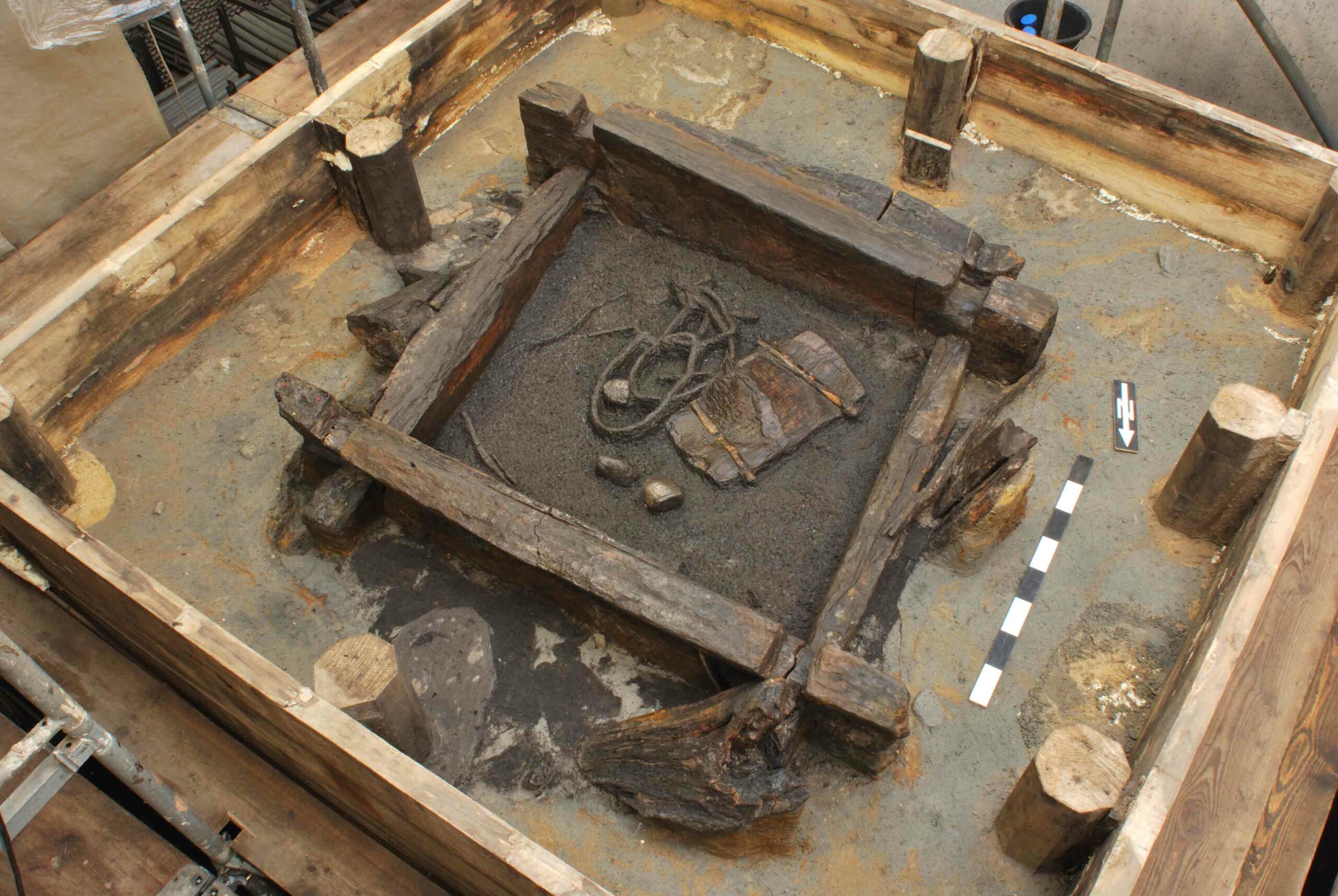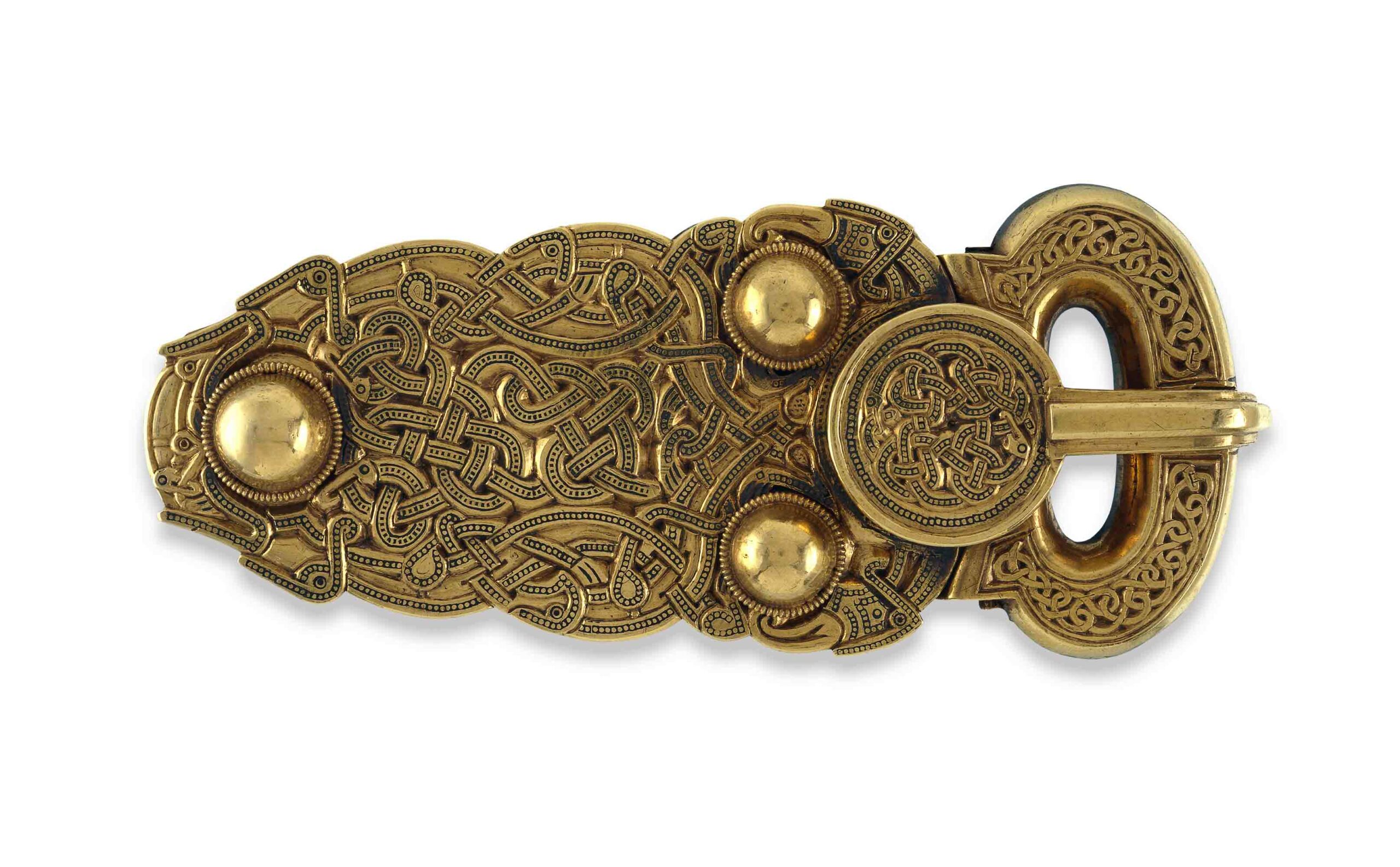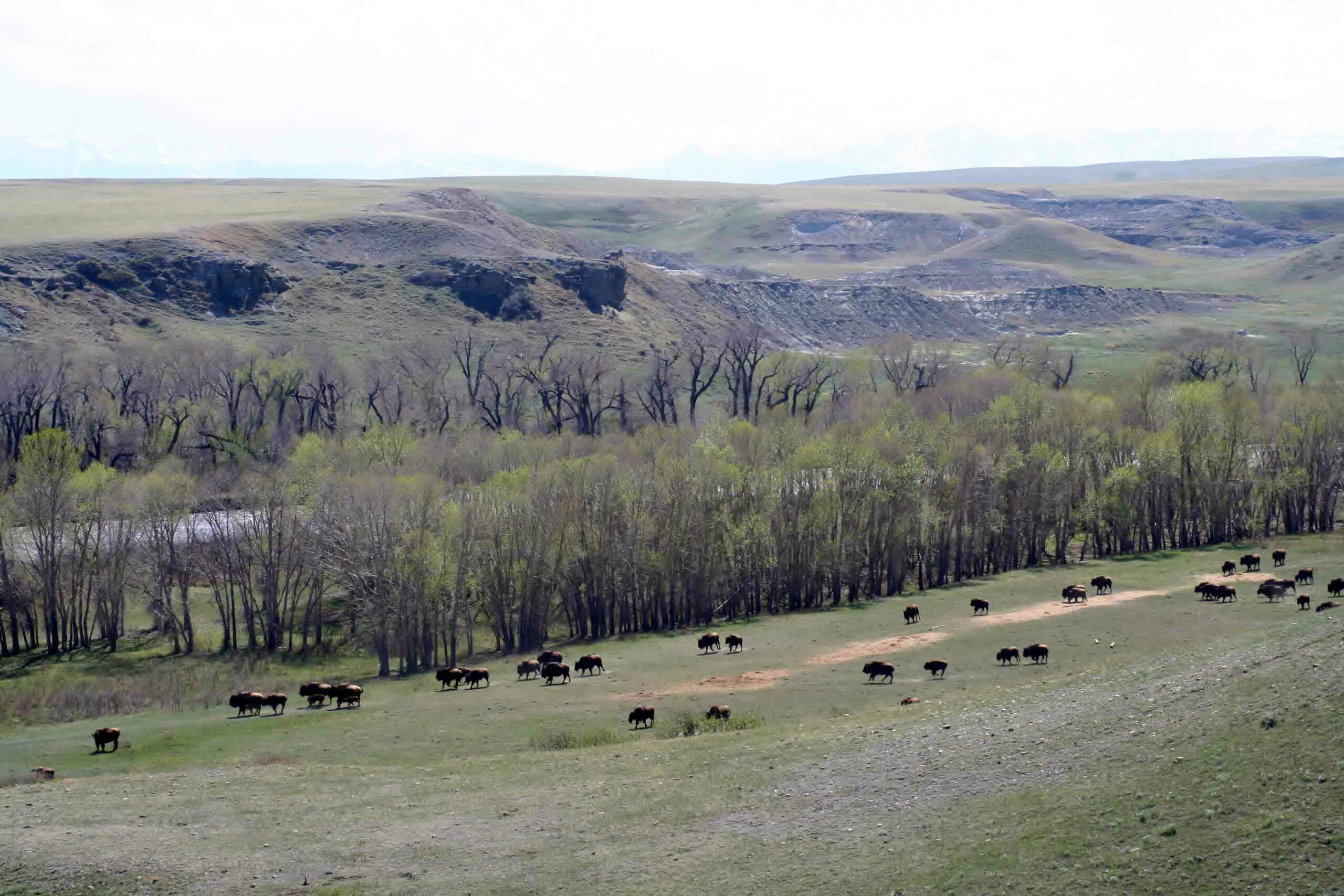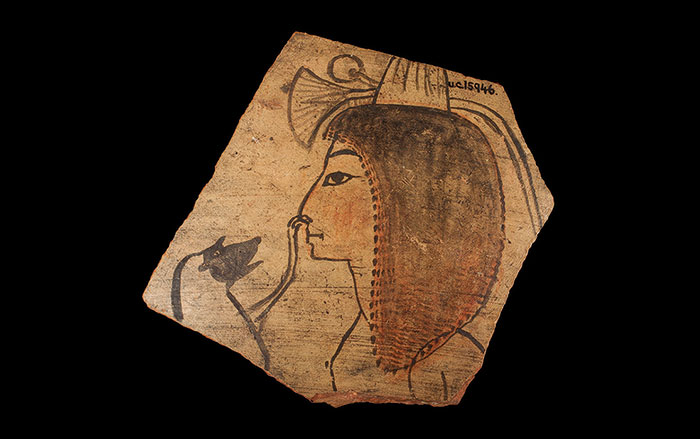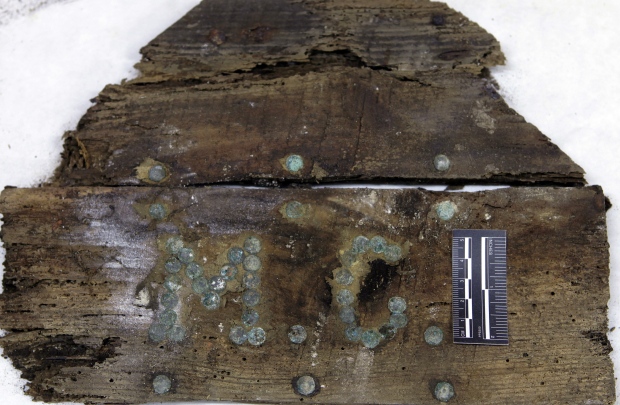
MADRID, SPAIN—Wooden planks bearing the initials “M.C.” have been discovered in the chapel crypt at the convent of the Barefoot Trinitarians in Madrid’s Barrio de las Letras, or Literary Quarter, where scientists have been looking for the remains of Spanish author Miguel de Cervantes. The letters had been formed on the wooden casket, now in fragments, with metal tacks. Forensic anthropologist Francisco Etxeberria told the Associated Press that the bones of at least ten people, including some children, were recovered from the niche where the coffin was found. The Don Quixote author was 69 at the time of his death in 1616, and it is known that he only had six teeth and had suffered several battle wounds earlier in his life. To read about similar searches, see "Lost Tombs."


